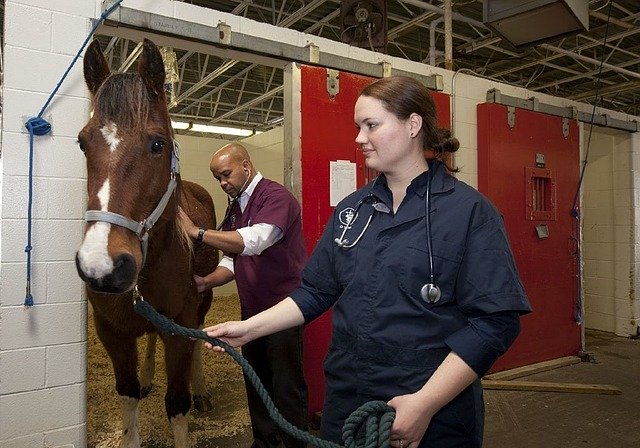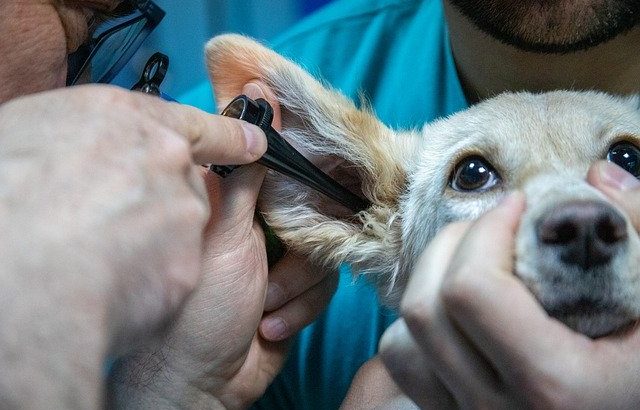7 Common Myths About Veterinary Careers Debunked
Are you considering a career in veterinary medicine? Also known as veterinary science, it’s a wide-reaching industry that involves diagnosing, treating and preventing medical conditions in animals. When researching information about veterinary careers, though, you shouldn’t believe everything you hear. Below are seven common myths about veterinary careers.
#1) Veterinarians Aren’t Actually Doctors
This statement couldn’t be further from the truth. To become a veterinarian, you must earn a Doctorate in Veterinary Medicine (DVM). During this four-year program, you’ll learn the ropes of veterinary medicine. Assuming you’re successful and complete the DVM program, you’ll earn a doctorate that signifies you are a doctor. Regardless, all licensed veterinarians are real doctors because they hold a DVM while also providing medical services to animals.
#2) Veterinarians Only Treat Dogs and Cats
While dogs and cats are some of their most common patients, veterinarians treat other animals as well. According to Cornell University, there are approximately 55.6 million pet fish and 13 million pet birds in the United States. As a veterinarian, you’ll be required to treat these and other types of animals. Some veterinarians even specialize in specific animals. A bovine veterinarian, for example, is a veterinarian who focuses on the treatment of horses. Bovine veterinarians may treat cats, dogs, fish and other types of animals, but they devote most of their energy towards horses. The bottom line is that veterinarians have a diverse portfolio of animal patients that goes beyond dogs and cats.
#3) A DVM Is All You Need to Work as a Veterinarian
You’ll need a DVM to become a veterinarian, but it alone may not suffice when seeking employment. Veterinary medicine is a competitive industry, so it’s important to distinguish yourself from other applicants. Along with a DVM, you may want to consider volunteering part time at a local veterinary clinic or animal shelter. Another way to beef up your curriculum vitae is to do an internship. Veterinary internships are designed to extend your education past the DVM. Most veterinary clinics will still pay you, but an internship’s primary purpose is to provide additional education. And after finishing your internship, you can include this on your resume when applying for veterinarian positions.

#4) There’s Little or No Room for Career Advancement
Another common myth about veterinary medicine is that it offers little or no room for career advancement. After working as a veterinarian for an extended period, you may decide that you specialize in a particular field. There are veterinarians who specialize in everything from surgery and dentistry to ophthalmology, diseases and more. Veterinary specialists such as these generally earn higher salaries than their counterparts. Even if you don’t wish to pursue a specialized field of veterinary medicine, you can always advance your career by opening your own clinic.
#5) Veterinary Technicians Are the Same as Veterinary Assistants
Veterinary technicians are often confused with veterinary assistants. While both are common veterinary professions, they aren’t the same. In the United States, veterinary assistants aren’t required to have formal education. Passing the Approved Veterinary Assistant Program (AVA) can increase a person’s chance of getting hired as a veterinary assistant, but neither a degree nor any other type of formal education is required for this position. In comparison, veterinary technicians must obtain a two- or four-year degree from the American Veterinary Medical Association (AVMA).
Veterinary technicians and veterinary assistants also have different job duties. Veterinary technicians typically have more focused duties that directly involve the treatment and care of animals. They may take x-rays, collect tissue samples, perform blood analyses and prepare animals for surgery. In comparison, veterinary assistants are responsible for simpler tasks like bathing, feeding and restraining animals.
#6) Veterinary Clinics Only Sell Medical-Related Products and Services
Veterinary clinics specialize in medical-related products and services, but many of them sell other types of products and services. Boarding and grooming have become increasingly common services offered by veterinary clinics. Thousands of veterinary clinics across the country offer boarding and grooming services for their clients’ pets. In addition to boarding and grooming, many veterinary clinics sell pet food. They carry a variety of high-quality pet food, which they can recommend for their clients’ pets based on their unique needs. A puppy, for example, may require a different formula of food than an older senior dog.
#7) All Veterinarians Work for Private Clinics
Contrary to popular belief, not all veterinarians work for private clinics. While most veterinarians do, in fact, work for private clinics, some of them work for other organizations, including the government. There are veterinarians who work for the Centers for Disease Control and Prevention (CDC), the Environmental Protection Agency (EPA), the Food and Drug Administration (FDA) and the Department of Health and Human Services (HHS). Some veterinarians even work for schools. After all, aspiring veterinarians must learn the ropes of veterinary medicine if they wish to start a career in veterinary medicine.

